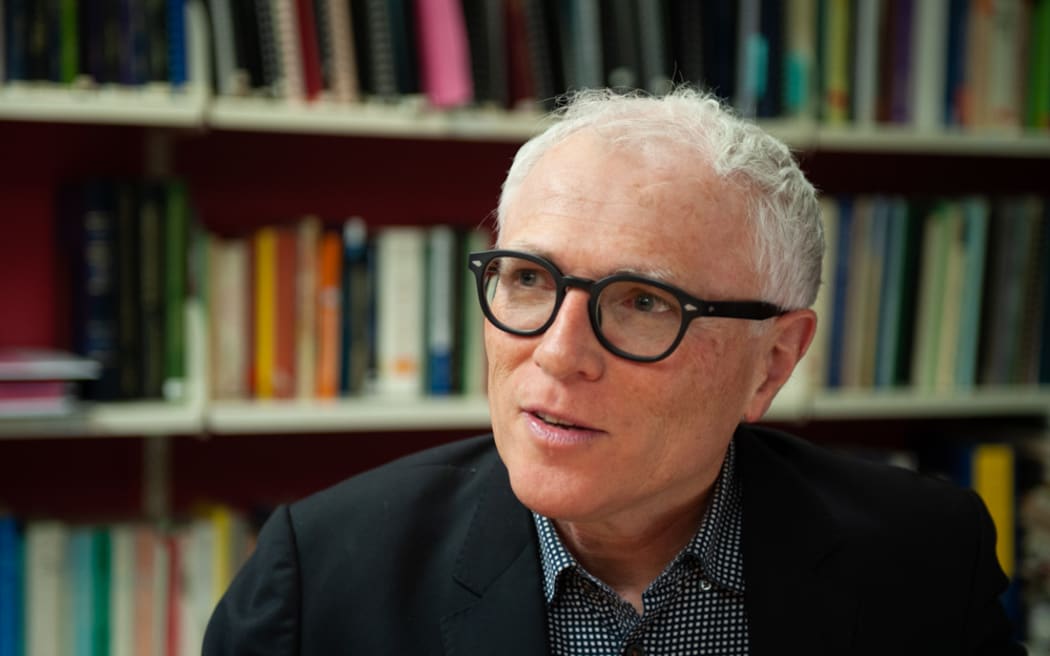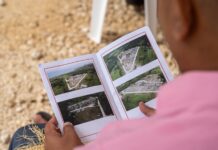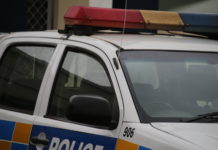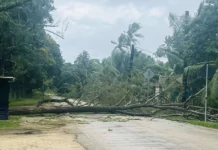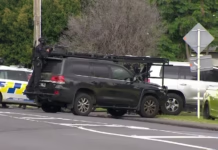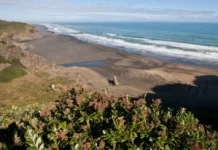An epidemiologist just honoured for his role as a pandemic evidence-broker is urging Kiwis to avoid becoming part of a summer wave that could push daily Covid-19 cases to 11,000.
Professor Michael Baker is being awarded the Royal Society Te Apārangi’s Callaghan Medal for science communication for his work on Covid-19. Photo: University of Otago Wellington / Luke Pilkinton-Ching
The University of Otago’s Professor Michael Baker, who’s become one of New Zealand’s most visible and trusted experts, tonight received the Royal Society Te Apārangi’s Callaghan Medal for science communication.
Speaking to the New Zealand Herald before a Wellington ceremony, Baker said he wanted to see the government itself communicate better about Covid-19 – especially when it came to advising people about how to protect themselves.
“Right now, the numbers are telling us that, with every 100 cases, one person is going to hospital; with every 1000, someone’s dying; and with every 20 cases or perhaps fewer, someone is going to get Long Covid, which may be quite debilitating.
“What I’d say to people is that this could be you – and that we all need to avoid becoming infected or reinfected, because it can mean running a gauntlet of risks.”
Last week, health officials warned cases over summer could peak at more than 11,000 cases a day and 100 hospital admissions a day, mirroring infection rates recorded in July during the Omicron second wave.
As Kiwis began planning social gatherings and holiday trips, Baker said people needed to keep basic precautions in mind.
For individuals, that meant taking obvious steps like ensuring they were up to date with their vaccinations, getting tested if they displayed any symptoms, and isolating if they tested positive.
“If you’re organising the office Christmas party, it’s a good idea to have a testing policy for what may be quite a high-risk event,” he said, adding well-ventilated venues were ideal.
“We’ve now had a lot of experience with this, having organised a few events, and there’s always a handful of people who unexpectedly test positive.”
Kiwis needed to be just as vigilant at family functions – particularly when visiting elderly or vulnerable people – but also be aware of potentially life-saving tools like anti-viral tablets.
“I think there’s now enough evidence to say that mask mandates are needed back on public transport,” he said.
“From the government, we also need clear, detailed guidelines for the public about how to use these tools.
“So far, we’ve had very anodyne, high-level messages; I think we do need more detail for people around how to run safe workplaces, schools and social events.”
Honour recognises public awareness work
Baker’s latest honour – which followed his Prime Minister’s Science Communication Prize and Wellingtonian of the Year in 2021 – acknowledged his contribution to raising public awareness to the value of science.
That included his strong scientific advocacy for the elimination strategy and other measures that contributed to an initial Covid-19 response estimated to have saved thousands of lives.
“This award is strong acknowledgement that communication to policymakers and the public is an essential part of scientific research and knowledge translation,” said Baker, who’s given more than 5000 media interviews on Covid-19, while leading or co-authoring more than 40 peer-reviewed publications.
“This requirement is particularly important for infectious diseases where rapid action is critical for responding to serious outbreaks and pandemics.
“Because infectious diseases are transmitted between people, the behaviour of individuals really matters. This reality means that it is even more important than usual to really engage with the public.
“We need to explain to people what they need to do to protect themselves and those around them, and also why their actions are important.
“And we need to make sure no one is left behind, so health equity is vital.”
* This story was first published on the New Zealand Herald’s website.

